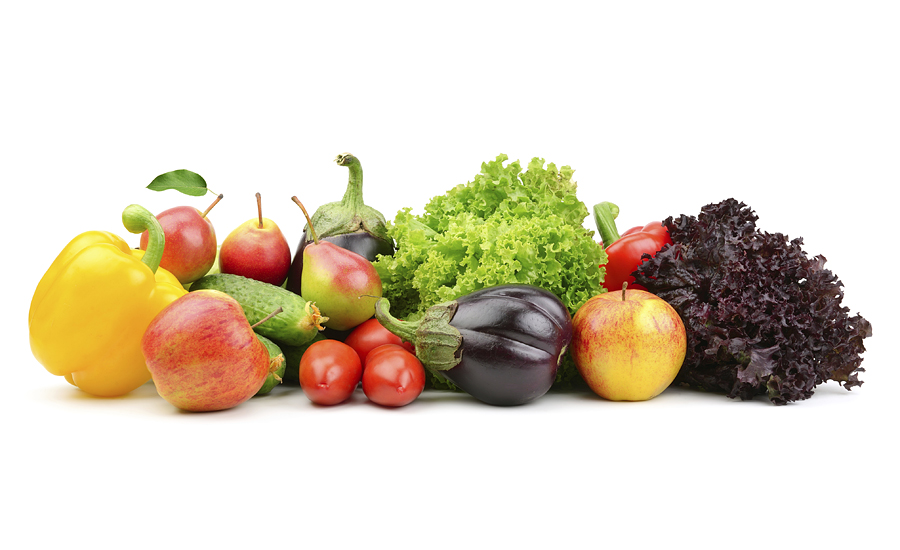America's 75 million Millennials are devouring organic, and they're making sure their families are too, according to a study conducted by the Organic Trade Association (OTA), Washington, D.C.
In fact, parents in the 18- to 34-year-old age range are now the biggest group of organic buyers in America. Among U.S. parents, more than five in 10 (52%) organic buyers are Millennials. And, this influential and progressive generation is stocking their shopping carts with organic on a regular basis.
"The Millennial consumer and head of household is changing the landscape of our food industry," says Laura Batcha, executive director and CEO. "Our survey shows that Millennial parents seek out organic because they are more aware of the benefits of organic, that they place a greater value on knowing how their food was grown and produced and that they are deeply committed to supporting a food system that sustains and nurtures the environment."
OTA partnered with KIWI Magazine, a brand of May Media Group, LLC, Marlton, N.J., to conduct surveys of the organic buying patterns of households since 2009. This year's survey, “U.S. Families' Organic Attitudes and Beliefs 2016 Tracking Study,” marks the first time that generational buying habits have been studied. The survey looked at Millennials (born between 1981-1997, currently age 18-34 years), Generation-X (born between 1965-1980, currently 35-50 years old) and Baby Boomers (born between 1946-1964 and currently 51-69 years old).
Compared to Millennials who account for 52% of organic buyers, Generation X parents made up 35% of parents choosing organic and Baby Boomers just 14%.
OTA surveyed more than 1,800 households throughout the country with at least one child under 18, and found that more than eight in 10 (82%) of U.S. families say they buy organic sometimes, one of the highest levels in the survey's 7-year lifetime. The number of families never buying organic has steadily decreased, going from almost 30% in 2009 to just 18% today.
While 35% of all families surveyed said that choosing organic products is a key part of their effort to live in an environmentally friendly way, a greater percentage of Millennials said buying organic is a key eco-conscious habit than any other generational group. For 40% of Millennials, choosing organic is an integral part of living green vs 32% of Generation Xers and 28% of Baby Boomers.
Organic buying continues to be on the rise across the generations. Forty-nine percent of all households surveyed said they are buying more organic foods today than a year ago.
Knowledge about organic is also growing across the generational spectrum of parents, but Millennials in particular are likely to view themselves as very knowledgeable about organic products, with nearly eight in 10 (77%) reporting that they are "well informed" (34%) or "know quite a bit" (44%). With that knowledge comes a great deal of trust for the organic label. Parents' trust in organic labeling is the strongest and highest among Millennials, with 54% saying they have confidence in the integrity of the organic label. Almost 60% of Millennial parents say they have a "strong connection" with the label and feel the organic label is an important part of how they shop for food.
"The Millennial shopper puts a high premium on the healthiness and quality of the food they choose for their families," says Batcha. "This generation has grown up eating organic, and seeing that organic label. It's not surprising that they have a greater knowledge of what it means to be organic, and consequently a greater trust of the organic label."
Survey methodology
The primary objectives of the 2016 household study were to measure any changes in families' primary organic shopping habits and motivations, as well as their overall knowledge and opinion of the organic movement. In addition, this year's study looked into how organic buying, attitudes and behaviors differ by generation within the context of U.S. families, and addressed the generational attitudes and beliefs regarding the USDA Organic label.
The target audience included a national online panel of U.S. households supplemented with KIWI Magazine's Parents' Advisory Board. All respondents had at least one child under the age of 18 in the household, and had sole or shared responsibility for household grocery purchases. The survey was conducted online Feb. 25 through March 5.


